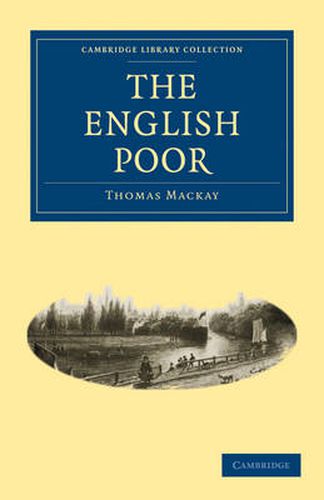Readings Newsletter
Become a Readings Member to make your shopping experience even easier.
Sign in or sign up for free!
You’re not far away from qualifying for FREE standard shipping within Australia
You’ve qualified for FREE standard shipping within Australia
The cart is loading…






In 1889, British wine merchant Thomas Mackay published The English Poor, which espoused the ideas of Darwin and applied them to British social and economic history. An acolyte of social Darwinist Herbert Spencer, Mackay writes that human history has been a struggle between individualism and socialism, and argues that only through individual competition (not state social support) will poverty be eradicated. The opening chapters discuss the human instinct for property accumulation, primitive forms of society, elite control of workers during the plague years, and the growth of the proletariat. Later chapters discuss social legislation, the evolution of England’s poor laws, and the Industrial Revolution. Finally, Mackay debates the scholarship of socialist Ernest Belfort Bax, bemoans the misguided ideas of Christian charity, and argues that the lives of ‘lower types’ of people have been prolonged by the poor laws. This is a fascinating document of late-Victorian economic thought.
$9.00 standard shipping within Australia
FREE standard shipping within Australia for orders over $100.00
Express & International shipping calculated at checkout
Stock availability can be subject to change without notice. We recommend calling the shop or contacting our online team to check availability of low stock items. Please see our Shopping Online page for more details.
In 1889, British wine merchant Thomas Mackay published The English Poor, which espoused the ideas of Darwin and applied them to British social and economic history. An acolyte of social Darwinist Herbert Spencer, Mackay writes that human history has been a struggle between individualism and socialism, and argues that only through individual competition (not state social support) will poverty be eradicated. The opening chapters discuss the human instinct for property accumulation, primitive forms of society, elite control of workers during the plague years, and the growth of the proletariat. Later chapters discuss social legislation, the evolution of England’s poor laws, and the Industrial Revolution. Finally, Mackay debates the scholarship of socialist Ernest Belfort Bax, bemoans the misguided ideas of Christian charity, and argues that the lives of ‘lower types’ of people have been prolonged by the poor laws. This is a fascinating document of late-Victorian economic thought.